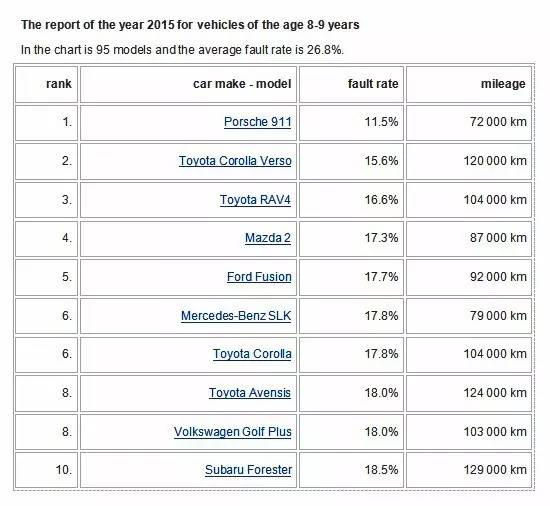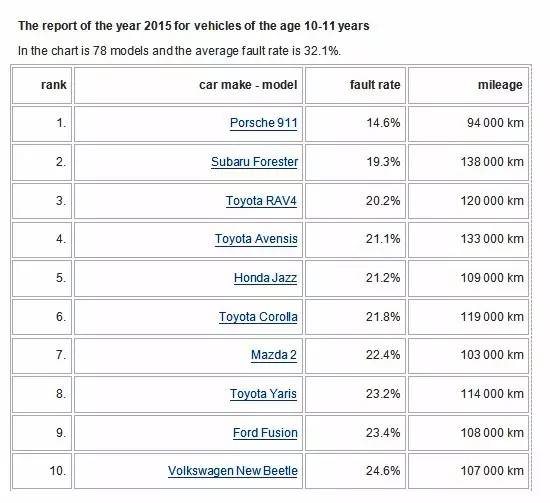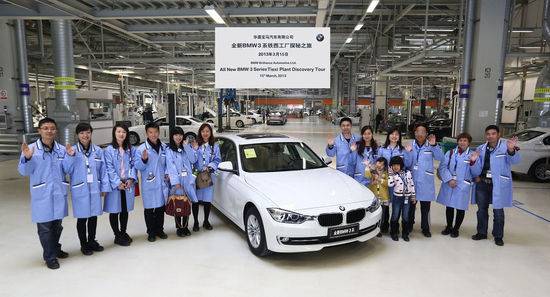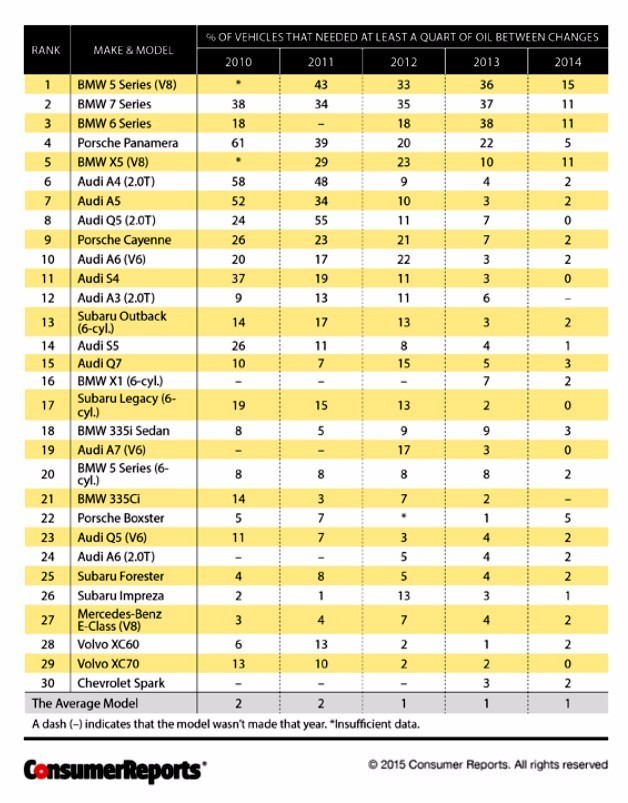Rumors about German and Japanese cars, don’t think that using Zhihu style will become true!
>>>>
By Daming
In recent years, the fallacy that Japanese cars are unsafe, not durable, and will be scrapped as soon as they reach the fixed number of years has gradually ceased. Thanks to the spread of some fair media, and the general public’s understanding of cars is becoming more and more mature, many people have recognized the proper position of Japanese cars.

However, this is only a part of the fact. For some unspeakable reasons, some media still attack Japanese with simple and rude country differences, probably to improve their credibility, and put forward a statement that the product design concept is different. Under the cover of the seemingly reasonable Zhihu style, it is a generalization of the facts and an inducement to consumers.
Below, let the author extract an argument full of nonsense published by a car repair company, and let us refute it one by one happily:
▼
▼
For example, this passage:
"In the eyes of Germans, leather is a good thing and durable, and German engineers are proud to be able to design products that can not be used badly. Mercedes-Benz E-class taxis eliminated in Germany have been transported to Africa to continue to be taxis, and many of them are still in service after running over 1 million kilometers. Mercedes-Benz has also announced that anyone with an old Mercedes-Benz with a length of more than 1 million km can get a new car for him free of charge, which is the manufacturer’s confidence in product quality. "
"In the Japanese, what would they do? Most of them think it is unnecessary to design such a durable product. The private car runs to 1 million km, and I estimate that it will be 80 years old, so Japanese engineers will investigate the frequency of changing cars in advance (in Japan, the average car change is 3-4 years, and the second buyer usually drives for 2-3 years), and then design the life of the product according to this usage data, so the effective vitality of 150,000-200,000 km is usually selected as the design goal. "

According to the meaning of this text, Japanese cars are usually 150,000 to 200,000 kilometers as effective vitality. But what is the truth?
We selected the report made by American Consumer Reports in 2016, that is, those models that are most likely to run more than 320,000 kilometers. They have 10 models, namely, Accord, Camry, Civic, Corolla, Toyota Senna, Honda Odyssey, Prius, CRV, 4Runner and Ford F150. (See: http://www.consumerreports.org/car-reliability/10-best-cars-to-get-to-200000-miles-and-beyond/).


That’s strange. According to this text, German cars are the best ones to run long distances, and the effective vitality of Japanese cars is 150,000 to 200,000 kilometers. Why is it that almost all the models that are most likely to run more than 320,000 kilometers in the United States are taken over by the Japanese, and there is no German department?
Of course, speaking of which, it is estimated that there are still people who are not convinced that Americans deliberately black Germans. Then let’s see what the Germans themselves say.
We found the report of TüV reports, a TV organization, which is Germany’s own quality inspection center. They reported the failure rate of various models in Germany. In order to reflect the reliability of long mileage of vehicles, we directly choose the models of 8-9 years and 10-11 years in their 2015 report. Because the list is too long, we only chose the top 10 models.
According to the Germans’ own reports, only three German cars ranked in the top 10 in 8~9 years, but in 10~11 years, only two cars were left, and the mileage of these top 10 German cars was almost the lowest. You know that the sales of Japanese cars in Germany are very small, which is simply a naked slap in the face of the German who specializes in German car racing and is praised by him in every way?
Maybe those German cars that are full of problems when they are less than 100,000 kilometers will suddenly bloom when they reach 200,000 kilometers, and then they will be young again?

▼
▼
Next, look at this even more jaw-dropping:
"[Difference 4: What should I do if I encounter technical problems? 】
German, overlord hard bow; Japanese, good at opportunism. "
"This is a very popular metaphor, so simple that no one believes that they will fill the pit. In fact, the real scene is very complicated. In addition, German engineers regard "bullying hard" to solve problems as heroes and despise detours as "cleverness", so there will be so many technological achievements in Germany that are difficult to surpass. "

▼
When I saw such a passage, the author couldn’t help laughing.
We all know the mass discharge door, which is probably the mouth of this author.The best "insurmountable technical achievement" of "German school, overlord is hard to bow"
What’s the matter with the emission gate? The United States has set strict standards for the emission of nitrogen oxides from diesel vehicles, and those that fail to meet them are not allowed to be sold in North America. Therefore, the German Volkswagen Group adopted the so-called "overlord is hard to bow":When the vehicle enters the inspection, a software is started to reduce the emission, and once it enters the actual use, the software is closed, and the emission in the actual use is 40 times higher than that in the inspection. This German "insurmountable technological achievement",It was smashed out by Americans in 2015. Anyone with a discerning eye can see what strategy the German Department has adopted in the face of this technical problem of strict emission requirements.
As for the Japanese, on this difficult problem of low fuel consumption, low emissions and certain performance, the strategy adopted is very simple. It is neither overbearing nor opportunistic, but it is another way to completely abandon diesel vehicles in North America and go directly to hybrid power. The actual situation is that Japanese hybrids account for more than 70% of North America, and only a slightly scaled Ford hybrid still uses Toyota-licensed technology.
The above is just a fallacy that non-professionals can easily test. As for other professional rhetoric, I won’t list them here.
That’s not all. The owner who specializes in German cars added a continuation after a nonsense in order to praise how good German cars are. Why do you want to continue? Because his previous words were almost scolded miserably, and the dog’s blood was dripping on his head. So I feel I need to defend myself.

▼
▼
? First of all, his defense is that German cars made in China are not German cars, but German cars are.
"I have to say that the definition of German products in my heart is narrow. The original German manufacturing and the imported CKD assembly products in the early years are the German goods in my mind. "
This excuse is feeble, because the American consumer report quoted by the author and the results of the German quality inspection agency are all for authentic German cars. How can we explain that the authentic German-made products are not as reliable as Japanese cars in both American and German reports?
? This German car fan has thrown out another theory:
"On the contrary, German cars are dignified, technology is a barrier, and the requirements for building cars are high, and the requirements for repairing cars are high."
Sorry, in the eyes of any professional, an industrial product should be easy to maintain. All industrial products produced on a large scale must take "maintainability" as an important design index. If it cannot be done, it means that there is something wrong with the design ability.
? Then there is another reason for this advocate who advocates everyone to buy German cars, that is,
The best answer is to go to the streets of Germany to see the proportion of cars with 500 thousand km and 20 years old.
The author wants to say, come on, is it strange that there are 500 thousand KM cars on the streets of Germany? What’s the ratio? Can you say the number? This unconvincing argument proves nothing. Why don’t you go to the streets of the United States and see the proportion of cars with 500 thousand KM and 20 years old?
▼

? This is endless. The author of this text has another theory, which is ~ ~ ~
"Domestic German cars have many shortcomings, while domestic Japanese cars have maintained most of their advantages."
I want to say, put your face over, promise not to hit you, and let BMW hit you in the face.
? The following is a statement from BMW officials:
"In BMW’s dictionary, there is no such word as MADE IN GERMANY. Maybe in other brands, it is considered that made in Germany is worth promoting, but not here. We only have MADE BY BMW and made by BMW."

We only have MADE BY BMW
Next, the author of this text also argued irrationally that many German cars burned engine oil on the road conditions, oil products and driving habits in China. That’s strange. Your manufacturer plans to sell cars to a certain area, don’t you consider the local road conditions and oil products? When it comes to road conditions and oil products, how many countries can compare with the United States? Let’s see if German cars in America burn engine oil.
▼
The following chart shows the list of engine oil burning models surveyed by the US Consumer Report in 2015, to see who is burning the engine oil badly.


In this 2015 survey, the only Japanese car that burns engine oil is the one that uses horizontally opposed engine. Almost all the others were occupied by German cars. What reason does the author of this text have to say that it is oil and road conditions?
Why?
ps
There are still many contents of the author of this text, so I won’t refute them one by one here.
When it comes to the end, under the fallacy of the whole article, the mechanic finally said a correct sentence in his text, that is
Gossip ends with the wise.
Now all kinds of rumors that Japanese cars are unsafe and not durable have long been abandoned in the trash by wise people. Even those foolish men and women will continue to believe the nonsense about German cars being heavy and leather. Of course, the German mechanic’s whole lie has also been abandoned by the wise.
At the end of the summary, I don’t intend to explain the original text and source of this lie in detail, because such nonsense deserves to be ruthlessly swept into the garbage dump of history, rather than being turned out to make it grandstand.
The content of this article only represents the author’s personal views.
Has nothing to do with the work unit it represents.
If you have a grievance, you have a debt. Please find two weeks for your comments.

Daming
Brain-dead car powder from the communication industry,
Powder cars, powder electric cars, powder machines that bring speed and passion,
I like them who can help us accomplish the impossible task.
I like to study the principle of cars,
Both engines, gearboxes, motors and fuel cells.
Amateurs have no hobbies, only cars!
Speed weekly
Micro signal: SpeedWeekly

Cars, And the micro-community of speed addicts
admire
Appreciate